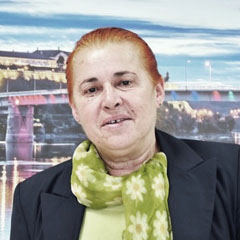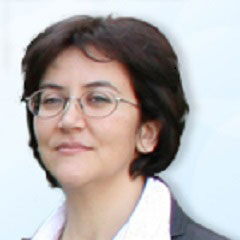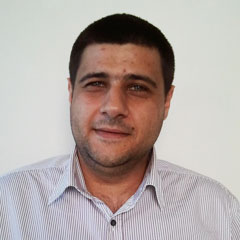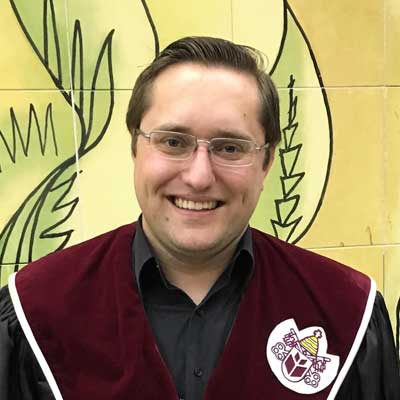ICT for health, well-being and sport
Organisers:
- prof. Miroslav Trajanović. Faculty of Mechanical Engineering, University of Niš, Niš, Serbia
- prof. Nenad Filipović. Faculty of Engineering, University of Kragujevac, Kragujevac, Serbia BIOIRC Bioengineering Research and Development Center, Kragujevac, Serbia
- prof. dr Anton Kos. Faculty of Electrical Engineering, University of Ljubljana, Slovenia, Ljubljana, Slovenia
- prof. dr Osiris Canciglieri Jr. Pontifical Catholic University of Parana – PUCPR / PPGEPS, Curitiba, Brasil
One of the greatest social challenges today is addressing many different concerns and issues related to healthcare and well-being. These challenges include, but are not restricted to, improving the understanding of the causes and mechanisms connected to health; ability to monitor, prevent, detect, and treat disease; personalize health and care delivery. For addressing such challenges, a new approach is needed, which will transform the health and care delivery. This approach is proactive rather than reactive. Healthcare should evolve mechanisms for early risk detection, shifting from the acute treatment to long-term health monitoring. Instead of focusing on single disease treatment, healthcare systems should become capable of handling multiple chronic conditions and comorbidities at the same time. Care delivery should become pervasive, not exclusively institutional. Finally, the generic treatment approach should be abandoned, and care should become more personalized.
Although health is an important, if not necessary, component of well-being, physical activities such as recreation and sports are a good way to maintain and improve it. With the rapid advancement and affordability of miniature, wearable sensor devices, new approaches to quantifying and qualifying our physical activities are possible. For example, innovative applications based on sensor data will contribute to faster, cheaper and safer physical rehabilitation programs, personalized recreational plans, and in-depth analysis of athletes' performance in different sports.
Advanced ICT technologies will play a crucial role in this transformation. Health-related data will grow and will have accurate and useful digital representations. Predictive computing, used by the care providers and customers, will use health-related data to facilitate early risk detection and self-management of health and disease. Health systems will become interoperable. Robotic systems, driven by artificial intelligence will enable assisted living, in smart, age-friendly homes. Biofeedback applications in healthcare, sport, recreation, and rehabilitation will enable an easier and faster way to achieving the desired results. They will assist individuals, healthcare personnel, and trainers in many ways; from influencing the physiological processes in the human body, to motor learning in sports and rehabilitation.
With this session, we aim to uncover the current research in the above mentioned topics and topics closely related to them. All relevant contributions are strongly welcomed.
Pre-trained Large Language Models
Organisers:
- Prof. dr Aleksandar Stanimirović (Faculty of Electronic Engineering, University of Niš, Serbia)
- Prof. dr Miloš Bogdanović (Faculty of Electronic Engineering, University of Niš, Serbia)
Pre-trained Large Language Models (LLMs), such as GPT, BERT, LLaMA, and T5, have drastically transformed the field of artificial intelligence with their capabilities for understanding and generating natural language. These language models have proven valuable in diverse applications and domains, including virtual assistants, recommendation systems, content generation models like ChatGPT, and text-to-image models such as DALL-E. Despite their widespread adoption, there are various challenges associated with building and utilizing these models. The fundamental questions to address today are: How can we ensure that LLMs are fair, safe, privacy-preserving, explainable, and controllable?
The special track will cover two main themes:
- Recent advancements in foundational LLMs and their applications in different domains.
- Identifying open issues and challenges related to building trustworthy LLMs.
We invite submissions focused on recent advances and applications of large language models (LLMs) with a particular emphasis on enhancing trust in the use of LLMs.
Techniques
- Innovative model architectures for LLMs, such as Transformer architectures and attention mechanisms.
- Advanced algorithms for improving performance, cost-effectiveness, robustness, and complexity of LLMs.
- Techniques for model transfer and compression techniques in the context of LLMs.
- Federated Learning approaches tuned for LLMs.
- Prompt Engineering methods tuned for LLMs.
Applications
- Innovative applications of LLMs in various domains, such as medicine, education, business, finance, etc.
- Educational technologies leveraging LLMs, such as chat-bots, content generation, feedback systems, etc.
- Utilization of LLMs for natural language understanding and generation tasks, such as storytelling, marketing copywriting, etc.
- Application of LLMs for health care, protein synthesis, etc.
Challenges
- Addressing data labeling and quality concerns associated for training LLMs.
- Privacy and security risks of models and data used by LLMs.
- Potential bias and unfairness in the output of LLMs
- Human oversight and intervention mechanisms for controlling LLMs.
- Hallucination detection and alleviation for LLMs.
- Exploration of ethics, social economics, and trustworthiness of LLMs.
- Emergent behavior in LLMs.
Digital Water
Organizers:
- Milivojević, Nikola (nikola.milivojevic@gmail.com). Jaroslav Černi Institute, Belgrade, Serbia
- Stojanović, Boban (boban.stojanovic@vodena.rs). Department of Mathematics and Informatics, Faculty of Science, University of Kragujevac, Kragujevac, Serbia
- Stojković, Milan (milan.stojkovic@ivi.ac.rs). The Institute for Artificial Intelligence Research and Development of Serbia, Novi Sad, Serbia.
Digital water refers to the integration of digital technologies into water management systems. It encompasses the collection, analysis, and utilization of data through advanced technologies like sensors, software, and predictive analytics to enhance the operation, maintenance, and planning of water resources management. The concept of digital water is increasingly important as cities and countries face the challenges of climate change, urbanization, and aging infrastructure, which place additional pressures on water resources. Digital water strategies are seen as essential for ensuring the sustainable management of this critical resource.
Authors are encouraged to submit papers on topics relevant to this session that include, but are not limited to the following:
- Data Acquisition: Using sensor networks, IoT devices, remote sensing, and smart meters to collect real-time data on water quality, quantity, distribution, and consumption.
- Data Analysis: Applying big data analytics, machine learning, and AI to interpret the large volumes of data collected, with the goal of identifying patterns, predicting demands, and detecting potential system failures.
- System Optimization: Using the insights gained from data analysis to optimize water distribution, reduce waste, enhance water treatment processes, and improve the efficiency and sustainability of water systems.
- Digital Twins: Creating digital replicas of physical water systems to simulate and analyze operations and predict the outcomes of changes or policy implementations.
- Smart Infrastructure: Implementing smart pumps, valves, and grids that can respond dynamically to changes in demand or supply conditions, often in an automated fashion.
- Customer Engagement: Engaging with end-users through digital platforms to provide them with insights into their water usage, promote water conservation, and improve service delivery.
Digital Agriculture: The Synergy of AI and Cutting-Edge Technologies
Organizers:
- Msc Željana Grbović, BioSense Institute, University of Novi Sad, Serbia
- dr Goran Kitić, BioSense Institute, University of Novi Sad, Serbia
The Digital Agriculture Track delves into the transformative power of Artificial Intelligence (AI) in reshaping agricultural practices. As Digital Agriculture undergoes a profound shift driven by advanced Information and Communication Technologies (ICT), the integration of AI algorithms, image processing, and data analytics is the key. These innovations redefine efficiency and precision in agriculture, launching in a new era of technological advancements.
Machine learning, a subset of AI, takes a central role in deciphering complex patterns in agricultural data, enabling informed decision-making and resource optimization. Proximal sensing sensors deliver real-time, high-resolution crop and environmental data, facilitating precision agriculture interventions. Additional in-field data are provided by IoT sensors that are able to monitor soil and microclimate conditions to optimize agricultural production. The hardware revolution in Digital Agriculture introduces Unmanned Ground Vehicles (UGV) and robotic platforms tailored for field and orchard management. These systems navigate challenging terrains with precision, transforming traditional orchard practices and promising increased yields. Elevating precision agriculture, Unmanned Aerial Vehicles (UAVs) equipped with advanced imaging technology provide a bird's eye view for detailed analysis. This aerial perspective enables swift identification of crop health issues and timely intervention.
The synergy of AI algorithms, image processing, machine learning, proximal IoT-based and in-situ sensing sensors, advanced hardware, UGVs, robotics platforms, and UAVs is steering a paradigm shift in agriculture. Digital Agriculture not only promises increased productivity but also advocates for sustainable and resource-efficient practices in this dynamic landscape.
Additionally, in the era marked by climate change concerns, the track also underscores how AI can play a pivotal role in promoting sustainability through the optimized management of vital resources like water and soil.
This specialized track invites contributions spanning a wide spectrum of interdisciplinary research and applications centered around AI, robotics and sensors in agriculture. The track aims to serve researchers, practitioners, and industry experts to engage in discussions about the challenges and opportunities inherent in the fusion of AI and Agriculture. By fostering an environment for informal discussions, this track aims to facilitate knowledge exchange and collaboration, paving the way for advancements at the intersection of AI and Agriculture. We eagerly anticipate your submissions and the opportunity to connect with you.































